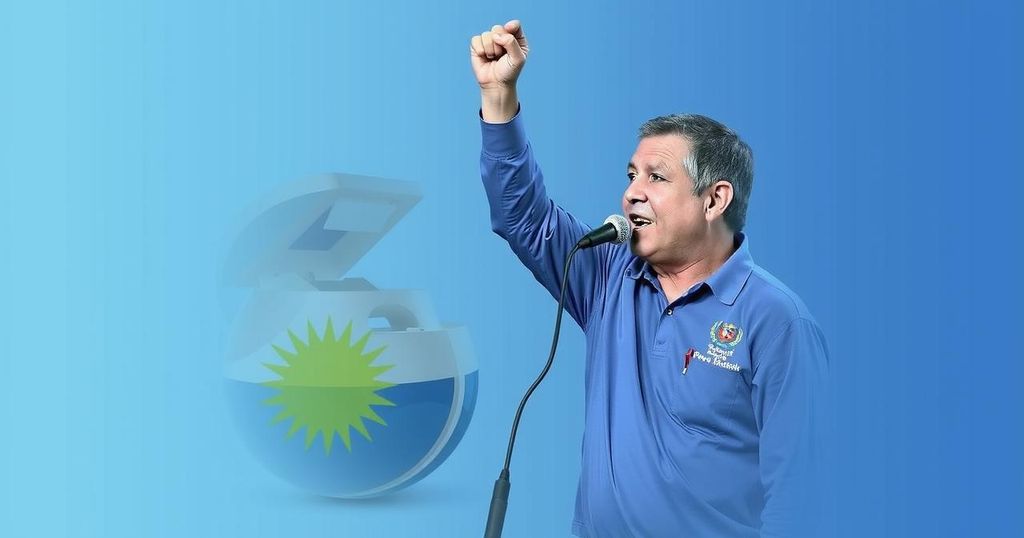Uruguay’s Presidential Election Advances to Runoff
Uruguay’s presidential election will proceed to a runoff on November 24 after no candidate achieved the necessary 50 percent majority. Yamandú Orsi, a center-left candidate, led with 42-44 percent, while Álvaro Delgado, the center-right candidate, followed with 27-28 percent. Both candidates are gearing up for the final campaign push ahead of the runoff, with significant implications for the country’s future social policies.
Uruguay’s recent presidential election is poised for a runoff scheduled for November 24, as no candidate secured the requisite 50 percent of votes in the initial round. The leading candidate, Yamandú Orsi, a former mayor affiliated with the center-left Broad Front alliance, garnered approximately 42 to 44 percent of the vote, outpacing Álvaro Delgado, the candidate representing the center-right governing coalition, who obtained about 27 to 28 percent. Despite Mr. Orsi’s strong showing, his total fell short of a majority, necessitating a second election phase. As the results settled, both candidates acknowledged the likelihood of a face-off in the upcoming runoff, with Mr. Orsi encouraging his supporters to maximize efforts in the remaining weeks of the campaign, stating, “We are going in for these 27 days” in a rally held in Montevideo, the capital.
Uruguay, a country known for its progressive social policies, has been under the governance of the Broad Front alliance, which held presidency from 2005 until 2019. The upcoming runoff reflects a significant competitive landscape, with a growing public expectation for enhanced social safety nets in light of the nation’s economic challenges. Yamandú Orsi’s rise in the polls signals a shift in voter priorities and indicates a potential return of the Broad Front to power. Álvaro Delgado, serving as the current president’s chief of staff, represents the continuity of the current administration’s policies, which may garner both support and opposition among the electorate in this closely contested election.
In summary, Uruguay’s presidential election has advanced to a runoff, highlighting the competitive nature of its political landscape. As both leading candidates prepare for the final stretch of campaigning, the outcome will be pivotal not only for their political futures but also for the direction of Uruguay’s social and economic policies. Voter engagement in the weeks leading up to the second round will be crucial in determining the next president.
Original Source: www.nytimes.com




Post Comment